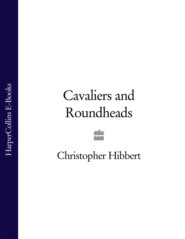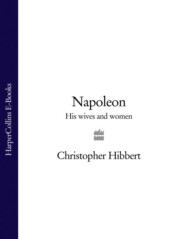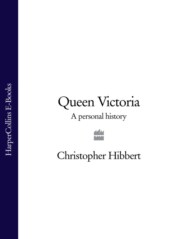По всем вопросам обращайтесь на: info@litportal.ru
(©) 2003-2025.
✖
Disraeli: A Personal History
Настройки чтения
Размер шрифта
Высота строк
Поля
In writing in such terms to the arch-Tory Duke of Wellington, Disraeli was, at least, sincere in his conversion to the Conservative cause and his rejection of the radicalism with which he had endeavoured in the past to modify it. He now nailed his colours to the mast, so to speak, by asking Lord Strangford to propose him, and Lord Chandos to second him, as an applicant for membership of the Carlton Club, which had been founded in 1832 after a general election in which only 179 Tories were returned out of a total membership of the House of Commons of 658, the intention being to form a social club which could serve as a meeting-place for Conservatives anxious to restore the fortunes of their party.
‘They have opened a subscription for me at the Carlton [Club],’ Disraeli told Sarah on 27 April 1835. ‘Tomorrow is nomination day.’ He wrote from Taunton, for which he was now standing as a Tory candidate. ‘Not that I can win this time,’ he warned her, for Henry Labouchere (afterwards Lord Taunton) would surely do so, having been returned at the head of the poll in the general election of 1830 and having represented the borough ever since. ‘But come in at the general election I must,’ Disraeli continued, ‘for I have promises of two-thirds of the electors. I live in a rage of enthusiasm; even my opponents promise to vote for me next time. The fatigue is awful. Two long speeches today, and nine hours canvass on foot in a blaze of repartee. I am quite exhausted, and can scarcely see to write! I believe in point of energy, eloquence and effect I have far exceeded all my former efforts. Had I arrived twenty hours sooner the result might have been in my favour.’
In Taunton, as elsewhere, his exotic appearance was as much remarked upon as the remarkable fluency of his speeches. One of those who heard him speak was astonished by the figure he cut:
Never in my life had I been so struck by a face as I was by that of Disraeli. It was lividly pale, and from beneath two finely arched eyebrows blazed out a pair of intensely black eyes. I never have seen such orbs in mortal sockets, either before or since. His physiognomy was strictly Jewish. Over a broad, high forehead were ringlets of coal-black, glossy hair, which, combed away from his right temple, fell in luxuriant clusters or bunches over his left cheek and ear, which it entirely concealed from view. There was a sort of half-smile, playing about his beautifully formed mouth, the upper lip of which was curved as we see it in the portraits of Lord Byron…He was very showily attired in a dark bottle-green frock-coat, a waistcoat of the most extravagant pattern, the front of which was almost covered with glittering chains, and in fancypattern pantaloons. He wore a plain black stock, but no collar was visible. Altogether he was the most intellectual-looking exquisite I had ever seen.
(#litres_trial_promo)
He did his best to dispel the reputation for inconsistency of which his enemies made great play. It was ‘absolutely essential’ for him to do so, Bulwer advised him: he must explain to the voters that ‘although a Tory you are a reforming one; because it is generally understood that you committed yourself in some degree with the other party’.
(#litres_trial_promo)
Disraeli endeavoured to do so, and in a long speech on nomination day, attacking the Whigs as an ‘anti-national party’ and elaborating their ‘incapacity’, he declared that it was his ‘duty to oppose them, to ensure their discomfiture and, if possible, their destruction’.
Tireless and persuasive as he was on the hustings, however, Disraeli’s time as a parliamentarian had not yet come: he received 282 votes against Labouchere’s 452. By general consent, however, his eloquence and wit in presenting his version of democratic Toryism were widely admired and even among those who were initially irritated by the extravagance of his clothes and gestures there were many who were won over in the end by his apparent sincerity and the astonishing fluency of his utterance. One of those who attended a banquet given for him by the Conservatives of Taunton provided this account of his manner and eloquence:
He commenced in a lisping, lackadaisical tone of voice…He minced his phrases in apparently the most affected manner, and, whilst he was speaking, placed his hands in all imaginable positions; not because he felt awkward and did not know, like a booby in a drawing-room, where to put them, but apparently for the purpose of exhibiting to the best advantage the glittering rings which decked his white and taper fingers. Now he would place his thumbs in the armholes of his waistcoat, and spread out his fingers on its flashing surface; then one set of digits would be released and he would lean affectedly on the table, supporting himself with his right hand; anon he would push aside the curls from his forehead…But as he proceeded all traces of this dandyism and affectation were lost. With a rapidity of utterance perfectly astonishing he referred to past events and indulged in anticipations of the future. The Whigs were, of course, the objects of his unsparing satire, and his eloquent denunciations of them were applauded to the echo. In all he said he proved himself to be the finished orator – every period was rounded with the utmost elegance, and in his most daring flights, when one trembled lest he should fall from the giddy height to which he had attained, he so gracefully descended that every hearer was wrapt in admiring surprise…His voice, at first so finical, gradually became full, musical, and sonorous, and with every varying sentiment was beautifully modulated…The dandy was transformed into a practised orator.
(#litres_trial_promo)
The sequel to this election in Taunton was a virulent quarrel with Daniel O’Connell, Member of Parliament for Dublin, who had angrily responded to reports which appeared in the press of Disraeli’s having insulted him as an incendiary and a traitor. O’Connell replied to this ‘blackguardism’ in terms equally insulting: the ‘annals of ruffianism’ did not furnish anything like the behaviour of this ‘reptile’ Disraeli.
He is an author, I believe, of a couple of novels [O’Connell wrote], and that was all I knew about him until 1831 or 1832, when he wrote to me, being about to stand for High Wycombe, requesting a letter from me to the electors. He took the letter with him, got it printed and placarded all over the place. The next I heard of him was his being a candidate for Marylebone; in this he was also unsuccessful. He got tired of being a radical any longer after these two defeats and was determined to try his chance as a Tory. He stood the other day at Taunton, and by way of recommending himself to his electors he called me an incendiary and a traitor. Now, my answer to this piece of gratuitous impertinence is, that he is an egregious liar…What! Shall such a vile creature be tolerated in England?
He was a ‘living liar’, O’Connell continued in ever-increasing anger. The British Empire was degraded by tolerating a ‘miscreant of his abominable description’. He possessed ‘all the necessary requisites of perfidy, selfishness, depravity, want of principle etc. which would qualify him for the change from Radical to Conservative. His name shows that he is of Jewish origin. I do not use it as a term of reproach; there are many most respectable Jews. But there are, as in every other people, some of the lowest and most disgusting grade of moral turpitude; and of those I look upon Mr Disraeli as the worst.’
(#litres_trial_promo)
These insults, Disraeli considered, could not go unchallenged; and he must, he felt, demand satisfaction.
(#litres_trial_promo) Having killed a man in a duel, O’Connell had taken a vow never to fight another; so Disraeli challenged O’Connell’s son, Morgan O’Connell, who replied that he was not responsible for his father’s remarks. Thereupon Disraeli wrote to Daniel O’Connell in terms of outrage no less virulent than those in which O’Connell had addressed him:
If it had been possible for you to act like a gentleman, you would have hesitated before you made your foul and insolent comments upon a hasty and garbled report of a speech which scarcely contains a sentence or an expression as they emanated from my mouth…Although you have long placed yourself out of the pale of civilisation, still I am one who will not be insulted, even by a Yahoo.
When Disraeli’s long letter appeared in the press, he wrote again to O’Connell’s son:
I deduce from your communication that you do not consider yourself responsible for any insults offered by your father, but only bound to resent the insults he may receive. Now, Sir, it is my hope that I have insulted him; assuredly it was my intention to do so. I wished to express the utter scorn in which I hold his character and the disgust with which his conduct inspires me…I shall take every opportunity of holding your father’s name up to public contempt. And I fervently pray that you, or someone of his blood, may attempt to avenge the unextinguishable hatred with which I shall pursue his existence.
(#litres_trial_promo)
There were those in his party and within his family who thought that Disraeli had gone too far. But he himself vehemently protested that his conduct was as praiseworthy as he chose to depict it. ‘It is very easy for you to criticise,’ he told his sister, ‘but I do not regret the letter: the expressions were well weighed…Others think [it] perfect…worthy of Swift…The general effect is the thing, and that is, that all men agree I have shown pluck…There is one opinion among all parties – viz: that I have squabashed them.’ In his diary he later wrote: ‘Row with O’Connell in which I greatly distinguish myself.’
(#litres_trial_promo)
Years later he told Reginald Brett (the future Lord Esher) that he never forgave an injury. When a man injured him he wrote his name down on a piece of paper and put it in a drawer and afterwards ‘something usually happened to him’.
10 DEBTS AND DUNS (#ulink_df52dde7-ebbd-559e-8e4e-a233c39edb22)
‘I trust there is no danger of my being nabbed.’
TOWARDS THE END OF JUNE 1835, Disraeli sent his sister a long description of a fancy-dress ball which ‘exceeded in splendour anything ever known in London’. His own dress he described as ‘admirable’.
Lady Chesterfield was a Sultana, and Mrs Anson a Greek, with her own hair lower than the calf of her leg. She was the most brilliant in the room…Lady Londonderry as Cleopatra was in a dress literally embroidered with emeralds and diamonds from top to toe. It looked like armor and she a Rhinoceros…
The finest thing is that at half past 2 Lyndhurst gave a supper in George Street to eighty of the supremest ton and beauty. You can conceive nothing more brilliant than his house illuminated with a banquet to a company so fancifully dressed…Lyndhurst looked like a French Marshal, Wilton was Philip 4th, and the Duke [of Wellington] lent him his Golden Fleece set in diamonds for the evening. The D of W spoke to me at the ball and said he did not know I was in London. He asked after my father.
(#litres_trial_promo)
Such entertainments as this supper given by Lord Lyndhurst in George Street did not prevent Disraeli from keeping ‘tolerably busy’, as he described himself in one of his arch and faintly flirtatious letters to the ‘fair and agreeable’ Lady Blessington, in October 1835.
In the summer, he had been writing articles anonymously for the Morning Post, vituperatively admonishing such personalities as the Attorney-General, John Campbell, that ‘base-born Scotchman, a son of the manse, that coarse Pict’, that ‘booing, fawning, jobbing progeny of haggis and cockaleekie’ who was to become the first Baron Campbell.
I have sent you the Morning Post every day, which is the only paper now read [Disraeli wrote to Sarah], and in whose columns some great unknown has suddenly risen, whose exploits form almost the sole staple of political conversation…The back numbers for the past week cannot be obtained for love or money, and the sale has increased nearly one third. All attempts at discovering the writer have been baffled, and the mystery adds to the keen interest which the articles excite.
(#litres_trial_promo)
He had also been working on a book of two hundred pages which was to be published under the title A Vindication of the English Constitution in a Letter to a Noble and Learned Lord [Lord Lyndhurst] by ‘Disraeli the Younger’.
This book elicited from D’Israeli the Elder a characteristic letter to the author:
Your vulgar birthday [his thirty-first] was, it seems, last Monday, but your nobler political birthday has occurred this week, and truly, like the fable of old, you have issued into existence armed to the full panoply of the highest wisdom. You have now a positive name and a being in the great political world which you had not ten days ago. It is for you to preserve the wide reputation which I am positive is now secured. I never doubted your powers…You never wanted for genius, but it was apt in its fullness to run over. You have now acquired what many a great genius never could – a perfect style…All that now remains for you to do is to register ‘a vow from Heaven’ that you will never write anything inferior to what you have now written, and never write but on a subject which may call forth all your energies…Take care of your health – that is the only weak part which I fear about you.
(#litres_trial_promo)
Disraeli the Younger told his sister that he sent a copy of the book to Sir Robert Peel even though he was ‘convinced that he would never notice, or even confess to having heard of it, being as you well know, by reputation the most jealous, frigid and haughty of men’. But, on the contrary, in his letter of acknowledgement, Peel wrote to say that, having been attracted by the name of the author as well as by some extracts which had appeared in ‘the public papers’, he had taken ‘the first opportunity of procuring a copy and had been gratified and surprised to find that a familiar and apparently exhausted topic could be treated with so much of original force of argument and novelty of illustration’.
(#litres_trial_promo)
Disraeli showed the letter to Lord Lyndhurst, who told him that the praise was ‘much, considering the writer’. He himself considered the work ‘a masterly union of learning, skill, and eloquence’.
Such was not likely to be the opinion of the Whigs, whom Disraeli had so roundly condemned in his book; and the review of it in the Whig paper, the Globe, was as abusive as Disraeli was in his attack on that ‘obscure animal’, that ‘miserable poltroon’, that ‘craven dullard’, that ‘literary scarecrow’, that ‘mere thing stuffed with straw and rubbish’ which was the Globe’s editor.
Having attacked the Whigs in the Morning Post, Disraeli, writing under the pseudonym, Runnymede, now attacked the Whig government of Lord Melbourne in the pages of The Times with the warm approval and support of its editor, Thomas Barnes, who was, in Lord Lyndhurst’s opinion, ‘the most powerful man in the country’.
The Letters of Runnymede are the only things talked of in London [their author told Sarah D’Israeli with typical self-congratulation in January 1836]. The author is unknown and will probably so remain. One or two papers have foolishly ascribed them to me. There is certainly some imitation of my style and the writer is familiar with my works…The Letters of Runnymede are still making a great sensation [he continued a week or two later]. They are considered as rising regularly in power, and the two last, the characters of Lord J[ohn] R[ussell] [the Home Secretary] and O’C[onnell], are generally esteemed the most powerful.
(#litres_trial_promo)
The virulence of the attack on O’Connell was typical of the whole. O’Connell was ‘a systematic liar and a beggarly cheat’. His public and private life were ‘equally profligate’. He had ‘committed every crime that does not require courage’. Lord John Russell was ‘a feeble Catiline [traitor]…an individual, who, on the principle that good vinegar is the corruption of bad wine, has been metamorphosed from an incapable author into an eminent politician’. Lord Palmerston, the Foreign Secretary, was the ‘Lord Fanny of diplomacy’ who combined the ‘smartness of an attorney’s clerk with the intrigue of a Greek of the lower Empire’; while the Prime Minister, Lord Melbourne himself, was guilty of ‘sauntering over the destinies of a nation, and lounging away the glory of an Empire’.
(#litres_trial_promo)
Even by the standards of the 1830s, these virulent assaults were considered strong meat; and some of the fiercer and more libellous phrases were softened by the editor’s pencil. But Disraeli, while pretending not to know the identity of ‘Runnymede’, was well satisfied with the effect which the letters produced. ‘Establish my character as a great political writer by the “Letters of Runnymede,”’ he noted in his diary, making a résumé of his progress that year. ‘My influence greatly increases from the perfect confidence of L[yndhurst] and my success as a political writer.’
(#litres_trial_promo)
The letters to members of the Tory Opposition were as fulsome as those to members of the Government were vitriolic. ‘In your chivalry alone is our hope,’ ran the letter to Peel. ‘Clad in the panoply of your splendid talents and your spotless character we feel assured that you will conquer.’ ‘In a Peel, a Stanley, a Wellington and a Lyndhurst,’ another letter concluded, ‘the people of England recognize their fitting leaders.’









